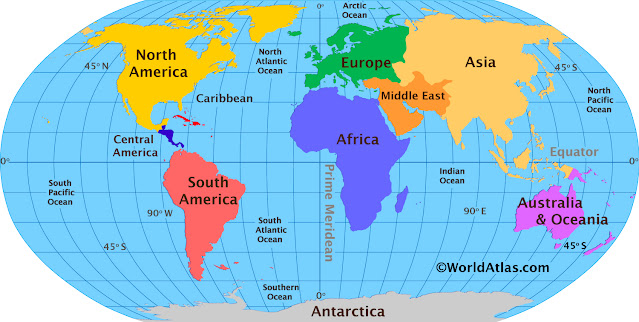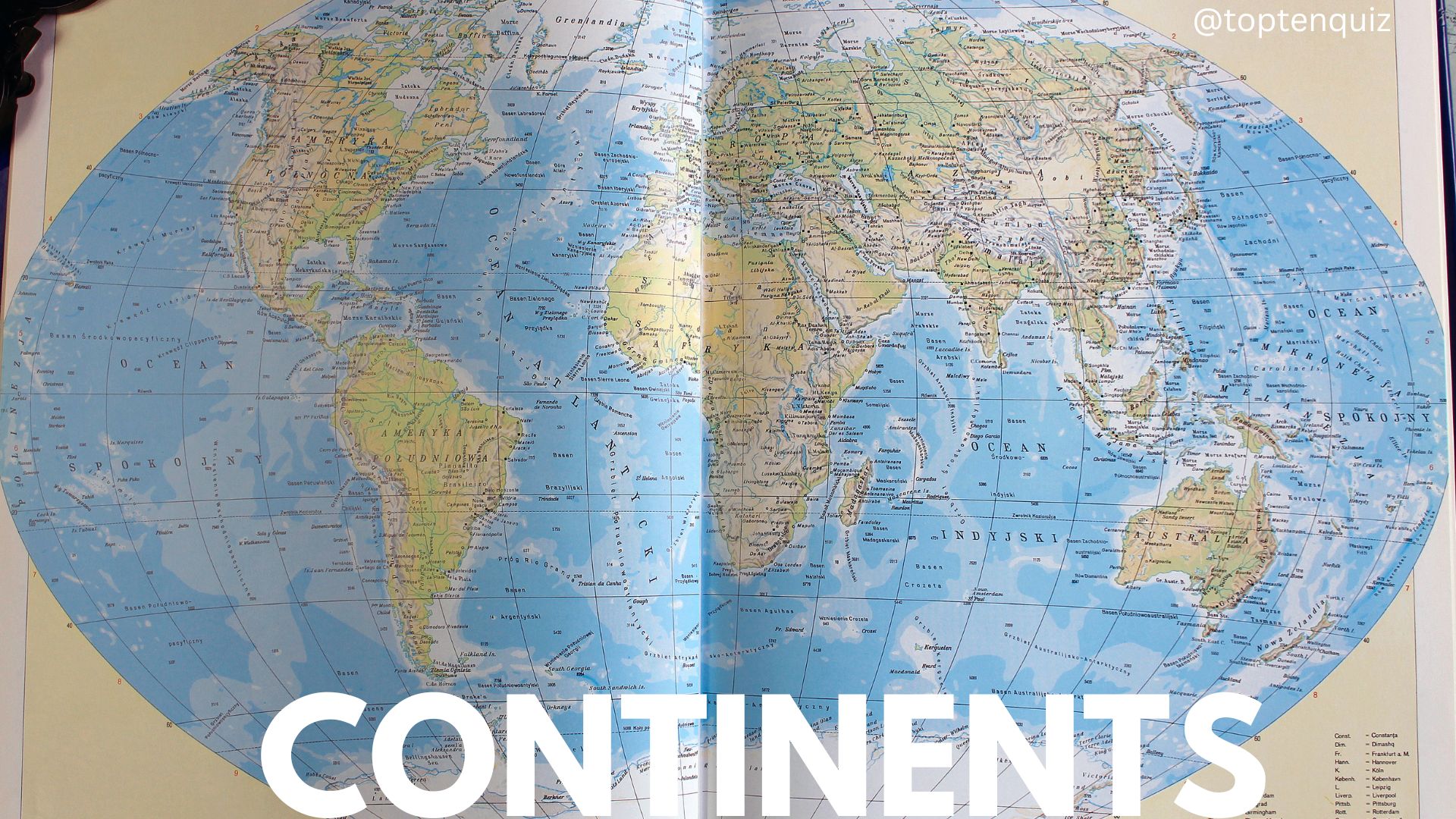• Asia is the largest continent.
• It is located to the north of the Indian Ocean.
• It is the world’s most populated continent.
• India is part of this continent.
• Mount Everest, the highest peak in the world, is situated here.
• The continent has regions that enjoy diverse climatic features like heavy rainfall, low rainfall, snowfall, extreme heat, moderate heat and cold
• Crops like paddy, wheat and maize are cultivated in this continent.
• Asia is the largest producer of paddy in the world.
🌎Learn more: Asian countries : Capital- Languages-Currency 🌍
2. Africa
• Africa is the second-largest continent.
• It is located between the Indian Ocean and the Atlantic Ocean.
• It stands second in population.
• Most of the regions are deserts. Hence agriculture is sparse. The Sahara, the world’s largest desert, is located here.
• The Nile, the world’s longest river, flows through this continent.
• Dense forests with the world’s richest animal diversity exist in this continent.

🌎Learn more: African countries : Capital- Languages-Currency 🌍
3. North America
• It is located between the Pacific Ocean and the Atlantic
Ocean. • It stands third in size.
• Mount Mckinley in the Alaska Mountain Range is the highest peak.
• The five great lakes which together hold 21% of the world’s
available freshwater are located here.
• The Inuits (Eskimos) living in snow-covered regions are a
special feature of this continent
• The climate and soil are suitable for agriculture. • It is the
world’s largest producer of wheat.
•The lakes Superior, Michigan, Huron, Erie, and Ontario located in
Canada and the United States of America are collectively known as the five
great lakes of North America.
🌎Learn more: North American countries : Capital- Languages-Currency🌍
4. South America
• It is located between the Pacific Ocean and the Atlantic
Ocean.
• It stands fourth in size.
• Mount Aconcagua is the highest peak.
• River Amazon with the largest share of freshwater, flows through
this continent.
• The dense forests of the Amazon river basin situated to
the north of South America are rich in diverse plant and animal life.
• Cattle rearing is an important occupation of the people.
🌎Learn more: South America countries : Capital- Languages-Currency
5. Antarctica
• Antarctica stands fifth in size.
• It is the coldest region of the world.
• It is known as 'the White Continent' since it is covered with
snow throughout the year. There is no permanent human settlement.
• Many countries have set up research centres for climate
studies and mineral explorations in this mineral rich continent.
• Maitri and Bharathi are the Indian research centres in Antarctica.India opened a post office in 1983 at its first Antarctic Research Centre named Dakshin Gangotri.
6. Europe
• It is located between the Atlantic Ocean and Asia.
• It stands sixth in size.
• The Ural mountain range separates it from Asia.
• It is the third most populated continent.
• Though Southern Europe enjoys moderate heat and cold, the
northern part experiences severe cold.
• It is industrially developed.
• Fishing is an important occupation.
🌎Learn more: European countries : Capital- Languages-Currency 🌍
7. Australia
• It is the smallest continent.
• Australia along with a few surrounding islands is known as
Oceania.
• It is referred to as 'the Island Continent' as it is
surrounded by Ocean.
• Platypus (the egg-laying mammal), kangaroo (the animal
with a pouch), Dingo (belonging to the dog family), etc. are found exclusively
in Australia.
•Wheat is cultivated extensively.
• Minerals like gold, iron ore and uranium are heavily mined here.
• It is famous for sheep rearing.
🌎Learn more: Australian countries : Capital- Languages-Currency🌍
